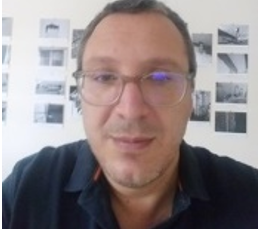
CHARISIOU NIKOLAOS
Assistant Professor “Processes and Systems for Energy Applications and Alternative Fuels”
Google Scholar
Scopus
Full CV
Short CV
| Office: | CP2_5 ΖΕP |
| Telephobne: | 0030 2461056617 |
| Email: | ncharisiou@uowm.gr |
Education
| Dgree: | 2000 – Environmental Management and Sustainability, Manchester Metropolitan University |
| Master Degree: | 2002 – Environmental Engineering, Department of Mechanical Engineering, University of Manchester |
| PhD: | 2017 – “Utilization of Biomass”, University of Patra |
Summary
Dr Nikolaos D. Charisiou (ORCID: 0000-0001-6339-4535) is an Assistant Professor at the Department of Chemical Engineering of the University of Western Macedonia (UOWM), Greece. He is also a member of the Laboratory of Alternative Fuels and Environmental Catalysis. He holds a BSc in Environmental Management and Sustainability from the Manchester Metropolitan University (2000), and an MSc in Environmental Engineering (2002) from the Department of Mechanical Engineering of the University of Manchester. He obtained his PhD in the Utilization of Biomass in 2017 from the University of Patras. He is the author of 86 manuscripts that have been published in peer reviewed international journals. The total impact factor (IF) of these publications is IF = 528.624 (Scopus), giving him an average IF/paper = 6.147. His work has attracted more than 3327 citations (Scopus, 3977 in Google Scholar), and his Hirsch index (h-index) is 31 (Scopus, 33 in Google Scholar). Dr Nikolaos Charisiou publication record also includes 2 book chapters (Wiley) and 203 publications in peer reviewed international (141/195) and national (62/195) conference proceedings. His research activities are focused on the field of Heterogeneous Catalysis and, especially, in materials synthesis and characterization, catalyst development and evaluation, and investigation of reaction kinetics and mechanisms. Of particular interest is the investigation of the surface chemistry and structure of dispersed metallic systems and of reducible metal oxides and their mixtures. Materials are characterized using a combination of physicochemical techniques, including selective chemisorption of probe molecules, temperature programmed desorption, reduction and oxidation (TPR, TPO and TPD), FT-IR, Raman, XPS and XRD. In parallel to catalyst development and testing, fundamental studies are made to identify the surface parameters, which determine the catalytic performance. Identification of reaction pathways and mechanisms is accomplished with the combined use of in situ FT-IR spectroscopy and transient mass spectrometry.
Recent publications
Courses 2023-2024
Catalytic processes
Conventional and alternative fuels production processes
Laboratory of Chemical Engineering ΙΙ
CO2 capture and utilization technologies
(Courses catalogue)
